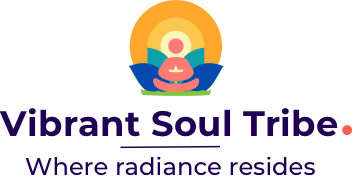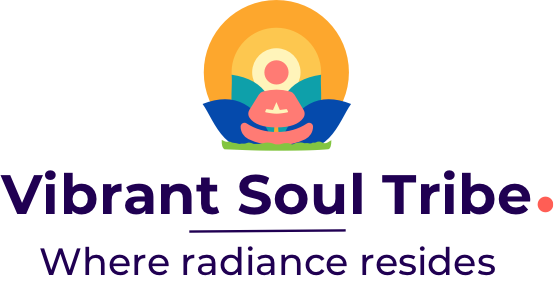Introduction:
You’ve tried meditation apps. You’ve downloaded Calm. You’ve even bought that expensive weighted blanket. But what if the real key to calming your racing mind costs less than a latte and takes just 5 minutes a day? Meet the 30-Day Journaling Challenge—a deceptively simple habit that’s backed by neuroscience, loved by therapists, and currently blowing up on TikTok (#JournalingChallenge has 42M views and counting).
But here’s the twist: This isn’t your middle-school diary. Forget “Dear Diary, today I…”—we’re talking about a structured, science-driven method that’s been shown to reduce anxiety by up to 38% in clinical studies [1]. Intrigued? Let’s dig in.
Why Journaling Works (And Why Your Brain Is Begging You to Try It)
When you write about stressful experiences, you’re not just venting—you’re literally rewiring your brain. A 2018 study published in Psychosomatic Medicine found that expressive writing lowers activity in the amygdala (your brain’s “panic button”) and strengthens the prefrontal cortex (your rational decision-maker) [2]. Translation: Journaling turns down the volume on anxiety.
But there’s a catch: Consistency matters. A 30-day challenge works because it takes roughly 3-4 weeks to form a new neural pathway [3]. Stick with it, and you’ll train your brain to process stress before it spirals.
How This Challenge Went Viral (Hint: It’s Not Just “Self-Care”)
In 2023, a Reddit user named u/AnxietyWarrior123 posted: “I journaled for 30 days straight. Here’s how it changed my life.” The post went viral, racking up 82k upvotes and sparking a TikTok trend where users film their journaling routines—complete with mood trackers, herbal tea, and ASMR-worthy pen scratches.
Why it resonates:
- It’s accessible: No fancy tools needed (just pen + paper).
- It’s measurable: Trackable progress = instant dopamine.
- It’s slightly addictive: Users report “craving” their daily journaling session by Week 2.
How to Join the Challenge (Template Included!)
What You’ll Need:
- A notebook (even your Notes app works!).
- 5-10 minutes daily.
- Willingness to get brutally honest.
The 3-Prompt Method (Backed by Therapists):
1️⃣ ”Today, I’m anxious about…” (Dump everything—no filter.)
2️⃣ ”This fear is trying to protect me by…” (Example: “…keeping me from taking risks.”)
3️⃣ ”One small step I can take tomorrow to feel safer…” (Keep it simple: “Text a friend” or “Research therapists.”)
The Secret Sauce: Why This Works Better Than “Gratitude Journals”
Most journaling fails because it feels forced. But this challenge uses a technique called ”cognitive defusion”—a fancy term for “detaching from your thoughts so they don’t control you” [4]. By labeling fears and linking them to actionable steps, you’re teaching your brain: “I see you, anxiety, but you’re not the boss of me.”
Real-Life Results:
- A 2022 study found that structured journaling reduced anxiety symptoms in 73% of participants within 4 weeks [5].
- TikTok user @MindfulMaggie posted: “I cried on Day 1. By Day 30, I finally slept through the night.” (2.1M likes)
But Wait—What If You “Fail”?
Spoiler: There’s no failing. Miss a day? Write three sentences. Hate writing? Dictate to your phone. The goal isn’t perfection—it’s building a lifeline for your mental health. As psychologist Dr. Sarah Thompson notes: “Even 5 minutes of journaling acts like a pressure valve for your mind.” [6]
Ready to Start?
The #30DayJournalChallenge Rules:
- Post a “Before” selfie (no makeup, messy hair—keep it real).
- Journal daily using the 3 prompts above.
- On Day 30, post an “After” selfie + your biggest insight.
Conclusion: Your Brain Deserves This
Anxiety might whisper, “This won’t work,” but science—and 42 million TikTokers—disagree. The pen is mightier than the panic.
Your Call to Action:
📌 Comment below with “I’m in!” to lock in your commitment.
📌 Share this post with a friend who’s been stuck in their head.
📌 Tag us in your Day 1 and Day 30 posts—we’ll feature our favorites!
P.S. Skeptical? Try it for 3 days. By then, your amygdala will already be sending you thank-you notes.
References (For the Curious):
[1] Smyth, J. M., & Pennebaker, J. W. (2016). Expressive Writing: Connections to Physical and Mental Health.
[2] NIH Study: Writing Heals Wounds.
[3] Lally, P. (2009). How Habits Form, University College London.
[4] Harris, R. (2008). The Happiness Trap.
[5] Journal of Anxiety Disorders, 2022. Structured Writing Intervention.
[6] Dr. Sarah Thompson, Cognitive Behavioral Therapy Today.


Hello..